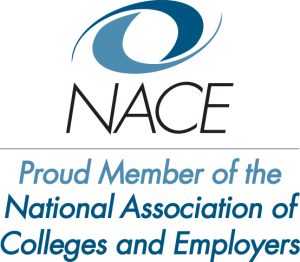Are Your Career Assessments Inclusive and Fair?
Educational institutions and employers alike are, increasingly and importantly, tuned in to matters of diversity, equity, inclusion, and justice. With this emphasis has come heightened awareness of matters of fairness across diverse groups in career assessment.
A common question we receive is whether there are differences in outcomes across gender, race, disability status, or socioeconomic status (SES) among people who receive feedback on their PathwayU assessments. In this post, we address whether PathwayU scores relate to group differences in outcomes and explain why this matters.
Is PathwayU’s career assessment a better predictor of outcomes for some groups than for others?
A key question is whether an assessment used to inform career decision-making predicts outcomes (such as satisfying employment within an occupation) equally well across groups. The PathwayU research team monitors score patterns from its assessments on an ongoing basis.
We recently examined a sample of nearly 1,000 employed adults comparing their interest fit to their current job, a key measure of the validity of scale scores. We did not find any statistically or practically significant differences between diverse groups, such as gender or race, in how well the assessments predicted this outcome. The complete absence of systematic differences suggests that PathwayU assessments are equally predictive of satisfied occupational membership across gender and race.
Unlike many other career assessment instruments, PathwayU uses criterion-based rather than norm-based scoring. Scores from a norm-based system tell students how they compare to “people in general.” In contrast, PathwayU’s criterion-based approach shows how a person’s scores correspond to the item response anchors, and also how a person's scores compare to scores on other scales for that person (e.g., "Your score on Social is moderate-to-high indicating that you enjoy Social tasks, and it's your highest interest type").
Students are essentially compared to themselves in this method, rather than to people in a norm group. A criterion-based scoring system also has the important advantage of facilitating more inclusive interpretation strategies than do norm-based systems that use separate-sex norms, which are difficult to interpret with clients who identify as nonbinary.
Are counseling interventions that use PathwayU more effective for some groups than for others?
Often, assessments such as those deployed within PathwayU are embedded within a career intervention such as individual or group counseling, a course, or a workshop. Knowing this, another key question is whether some students receive more benefit than others from these interventions, in a way that varies systematically across demographic categories.
In a large-scale experiment (with more than 600 students across four campuses) testing the efficacy of a brief career decision-making workshop featuring PathwayU, we found that workshop participants (compared to those in a control group) reported greater career decision confidence, fewer career decision difficulties, and greater confidence that attaining their career goals will result in valued outcomes.
Results suggested that the size of the effects did not differ across gender, race/ethnicity, or disability status. Results did reveal a difference across self-reported SES, with the most positive effects reported by those low in SES.
Other research conducted with our educational partners reveals that PathwayU has a significant positive impact on students’ career attitudes and decision-making; this study suggests that these differences are equivalent across key demographic categories, with the exception of being particularly helpful for lower-SES students.
Make sure your career assessments serve all your students equally well
Whichever assessments or assessment systems you use, it is crucial that you ensure fairness in what your students receive—not just in terms of access to the available tools, but in terms of their effectiveness at predicting outcomes. Both of these objectives—access and effectiveness—are key values for PathwayU.
For this reason, our pricing model makes our assessments free for all users attending an institution paying a (competitively priced) site license, in contrast to competitors who charge a fee per individual use. In short, we want you to use our assessment platform to benefit as many of your students as possible. And who benefits?
Our research demonstrates that our assessment results predict outcomes equally well across demographic groups. Furthermore, counseling interventions that incorporate PathwayU show equivalent benefits across sex, race, and disability status, and are especially helpful for students lower in SES.
Be Sure of Your Career Assessments
Do you want to ensure you are delivering career assessments in a way that promotes a culture of diversity, equity, inclusion, and justice? Reach out to us to discuss using PathwayU on your campus.
-1.png?width=288&height=67&name=PathwayU_PGLogo%20(1)-1.png)











